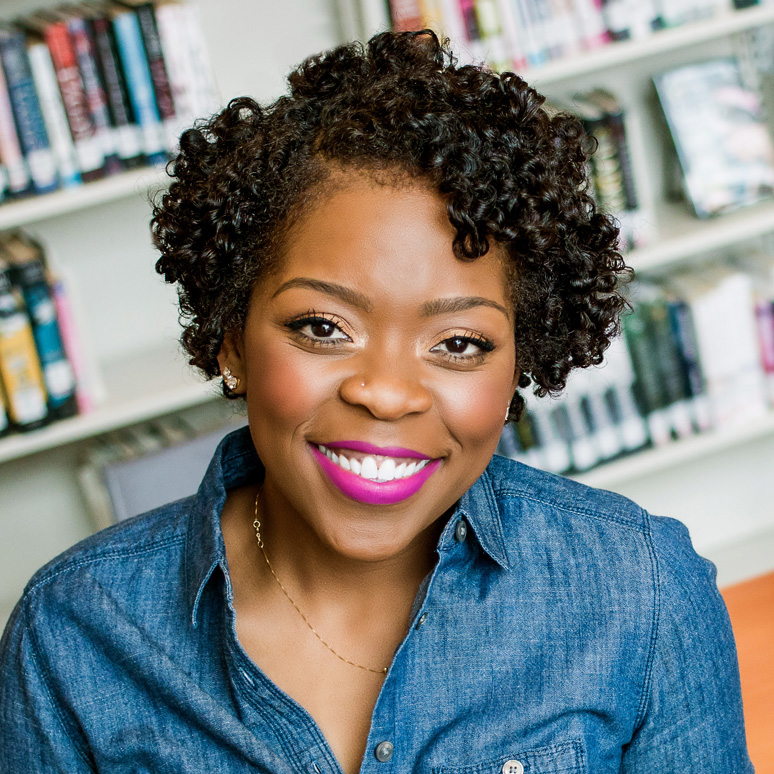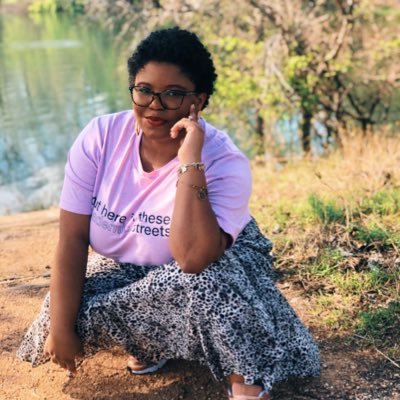
Source: Sharde Davis, PhD/UConn
“You’d be a great diversity hire.”
That’s all my mentor, my academic idol, the one person who knew everything I had worked for and through, looked me in my Black ass face and said as I was transitioning from being a student in the world of academia to becoming a professor.
Honestly, I wish I could say that I had some well-prepared, Angela Davis-esque retort that skillfully and willfully dragged this MF from Selma to apartheid, but I had nothing. Because I knew he wasn’t wrong. He wasn’t right. But he wasn’t wrong. Crushed, I remembered giving him a “brave smile,” and walking out into a haze. My only goal: don’t cry before I get home. I failed.
I never mentioned what my mentor said to me to another soul — sans the ball and chain, but we’re one or whatever. Instead, I filed it away in the “Bullsh-t You Have To Put Up With In The Name of Not Drawing Any More Attention To Your Blackness So As To Keepeth A Career” pile. Besides, who would I tell anyway? Was I even sure that was a “race thing?” Could I just be being overly sensitive? With no place to take my story, I tucked it away. That is until two fellow Black Communication scholars created a title wave on Twitter about a week ago.
#BlackintheIvory is a hashtag that was started by Sharde’ Davis,PhD, an Assistant Professor in the Department of Communication at U Conn, and Joy Woods, MA, a graduate student at the University of Texas-Austin, after a night of discussing their experiences in higher ed. Like many Black men and women, inspired by the protests taking place across the nation, the pair began sharing horror stories of their experiences as Black women in America, but what set their stories apart was their exposure of a rarely examined pillar of systemic racism in American society: academia. While Davis and Woods only intended to use the hashtag to track their stories, in a matter of hours, thousands of men and women began sharing similar tales.
“This is the first time Black academics have a space to share their stories,” Dr. Davis told me. “I think people are, like we are, emboldened, emboldened by all that’s going on in our world. We didn’t create the space, per se, but we kind of opened the door, because a lot of [us] teeter between being brave and bold, and also knowing when to pipe down. There’s always that veiled threat that if we speak up, there will be repercussions.”
For Woods, taking a stand is a chance worth taking. “I’m a graduate student. I know students can risk not getting into a program or getting a job [for speaking out]. But I’d rather get locked out of anywhere for telling my truth because being silent is just no longer an option.”
While sharing our truth is an important first step, it leaves us with the question of what to do with these stories. What can Black students, staff, faculty, and administrators do with the knowledge that so many others also struggle with issues of race in the Ivory?
“It has to be a case-by-case thing,” Dr. Davis said. “Not everyone is ready or willing to say, ‘Hey, this is what happened to me;’ and I get it. People have different personalities, different situations. There’s really no one-size-fits-all answer. You have to do what works for you. And it’s okay if what you do is not what someone else does.”
And what about our white colleagues? What can they do with the stories they’re seeing on Twitter?
“White folks need an affinity group or something,” Dr. Davis said. The three of us take a moment to let that sink in and let out a few moments of laughter at the rather novel idea. A white affinity group?
“But they do,” she continued. “They need a safe space, filled with other white people who are ready and willing to sit down and be real, and uncomfortable, and really ready to do the work– check each other, do reading about their race, ask questions, deal with their emotions. Once this work has been done, Dr. Davis believes “folks will know how to be a better aspiring ally, and will take more appropriate measures to do the work when it comes to restructuring the University.”
For Woods, it’s important that white colleagues and students sit with the stories captured by #BlackintheIvory and dig into their own biases, blindspots, problematic behaviors, and so on. She believes there’s a level of ownership that has to happen in order for change to begin. This means being “incredibly introspective” to determine crucial areas of improvement.

Source: Joy Melody Woods, MA / Twitter
To be #BlackintheIvory is to know the disproportionate number of Black folks across campus, especially in the front of the classroom and atop the Ivory hierarchy. Often times, we are the only Black student in graduate programs, Black faculty member in the department, or even the only Black person to hold a particular position in the administration. So it’s no surprise that people have been waiting for an opportunity to say, “I wasn’t crazy” or “I wasn’t imagining things” when this or that happened.
Beyond self-introspection, Dr. Davis has a very simple demand when it comes to how institutions can begin to right their wrongs when it comes to the treatment of Black faculty: “Pay us.”
While she admits it’s a very “complex conversation to be had,” fair treatment ultimately boils down to “compensating Black people in academe for all of our work.” (Insert me bowing my head, closing my eyes, snapping my fingers and shaking my head in agreement over the phone.) “It’s easy for folks to question why people want payment for service, which is a requirement for our jobs. But Black folks (across ranks) do more service, period. And, we do institutionally recognized service (sit on committees) and also invisible service (mentorship, advocacy, counseling) as well as the emotional labor of helping white folks navigate their feelings.”
While dismantling the inequities of higher education may not be atop the priority list in our current fight for justice, the “rose-colored glasses are off” and people “can no longer ignore Black voices and experiences,” Dr. Davis stated. For many of us, that’s what made the #BlackintheIvory hashtag so powerful. It was an opportunity to share with the world that we’re not okay. Still, we remain hopeful. Hopeful that white allies will do the work; hopeful that universities will begin to compensate us for the invisible labor they benefit from. Both Woods and Dr. Davis agree that it will take a long time, but the change has to be structural, and it must be tangible.
As I finished our interview, I asked myself, What if the Ivory tower doesn’t listen? I sat with the question, going back through some of my own experiences and the stories that have been shared with me over the last decade of working as a grad student and new faculty member. I laughed, thinking, This is only the tip of the iceberg. If the captains of Ivories don’t take off those rose-colored glasses… Well, you’ve seen the ending of Titanic.









